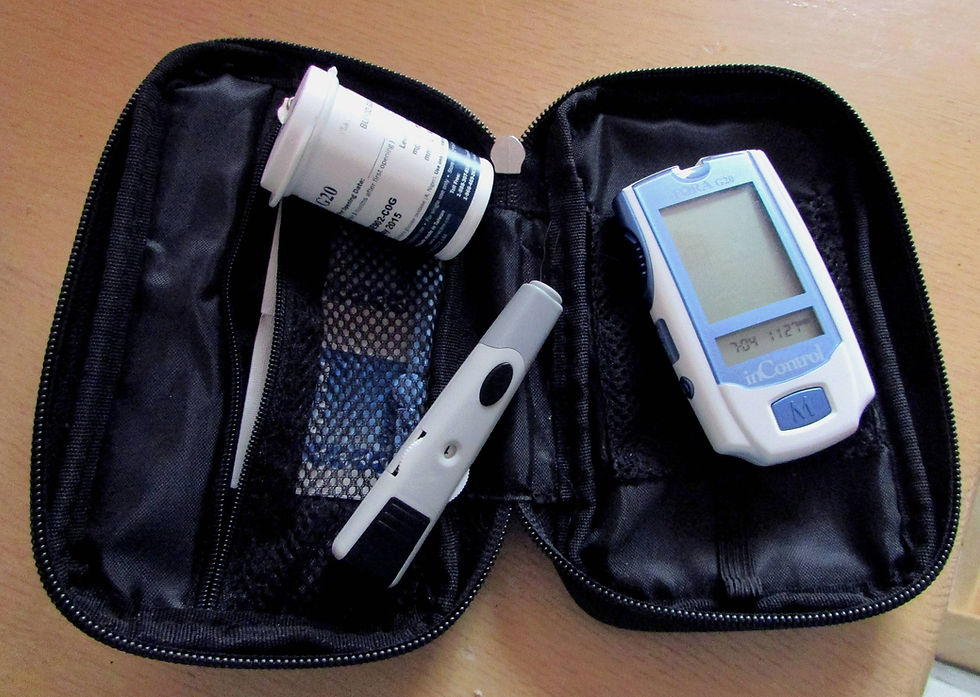Taking Control of Diabetes with Medical Implants
- alleywayy
- Aug 21, 2023
- 2 min read
Updated: Sep 6, 2023

Diabetes is a chronic illness affecting millions of people around the world. Managing it can be a lifetime struggle, but thanks to modern medical technology, there is a new tool that can help. Medical implants for diabetes are devices that work in conjunction with mobile applications to help patients track and manage their glucose levels efficiently. These implants are the latest innovation in the world of diabetes management, and they are making it easier for people to take control of their health.
The first thing to understand about medical implants for diabetes is how they work. These devices are tiny electronic sensors that are placed under the skin, usually in the abdomen. They measure glucose levels in real-time and transmit the data to a mobile application on the patient’s phone. This allows the person to stay informed about their glucose levels throughout the day, without having to manually check their blood sugar levels.
One of the biggest benefits of medical implants for diabetes is the continuous glucose monitoring they offer. Traditional glucose meters require patients to prick their fingers several times a day. This can be a painful and inconvenient process, leading some patients to avoid it altogether. With medical implants, the data is collected automatically, making it easier for patients to stay on top of their glucose levels. The real-time nature of the monitoring also means that people can make informed decisions about their diet and medication choices, based on current glucose readings.
Another key benefit of medical implants for diabetes is the ability to share data with healthcare professionals. The mobile application that is used to monitor glucose levels can be set up to send data to a patient’s medical team. This helps doctors and nurses keep track of their patient’s blood sugar levels in real-time, making it easier to catch problems before they escalate. It can also help practitioners to adjust treatment plans as needed, based on the latest data available.
One aspect of medical implants for diabetes that people often appreciate is the discreet nature of the devices. Many patients who rely on traditional glucose meters feel self-conscious about checking their glucose levels in public. Medical implants, on the other hand, are completely hidden from view, allowing people to track their glucose levels without drawing attention. This can be especially useful for people in the workplace, or in other public settings where diabetes management can be challenging.
Medical implants for diabetes are an exciting new tool in the fight against this chronic illness. By providing continuous glucose monitoring and real-time data tracking, these devices are making it easier for patients to take control of their health. They also offer benefits in terms of data sharing with healthcare professionals and discreet glucose monitoring. While these devices may not be suitable for everyone, they are an important addition to the diabetes management toolkit. If you or someone you know is looking for a new approach to managing diabetes, medical implants for diabetes may be worth exploring.



Comments